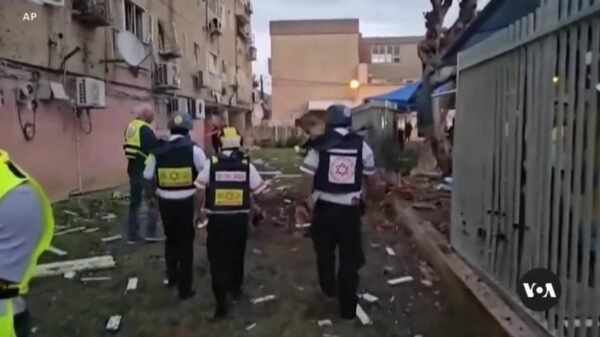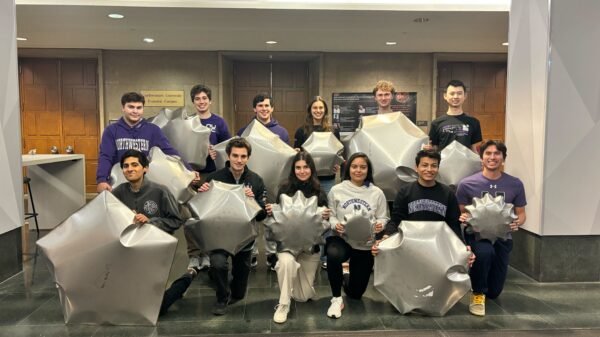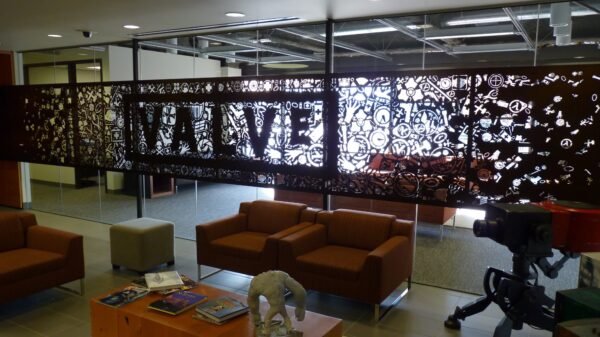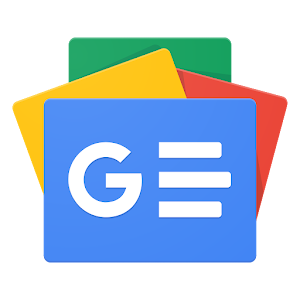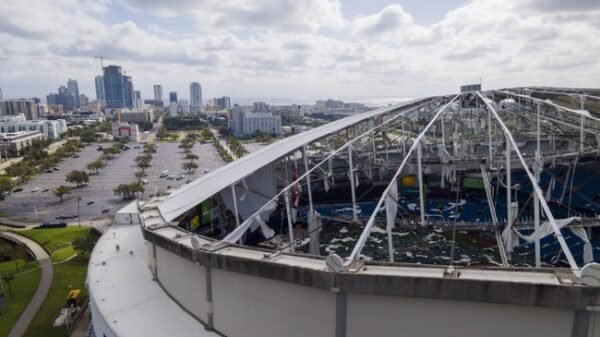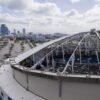Following eight months of intense analysis, design, and prototyping, six college groups introduced their “Inflatable Methods for Lunar Operations” ideas to a panel of judges at NASA’s 2024 Breakthrough, Innovative and Game-Changing (BIG) Idea Challenge discussion board.
The problem, funded by NASA’s House Know-how Mission Directorate and Workplace of STEM Engagement, seeks novel concepts from increased training on a brand new subject annually and helps the company’s Lunar Surface Innovation Initiative in growing new approaches and revolutionary applied sciences to pave the best way for profitable exploration on the floor of the Moon. This yr, groups had been requested to develop low Measurement, Weight, and Energy inflatable applied sciences, buildings and programs that might profit future Artemis missions to the Moon and past.
Taking high honors at this yr’s discussion board receiving the Artemis Award was Northwestern College with Nationwide Aerospace Company & IMS Engineered Merchandise, with their idea titled METALS: Metallic Expandable Know-how for Artemis Lunar Buildings. The Artemis Award is given to the crew whose idea has the most effective potential to contribute to and be built-in into an Artemis mission.
Julian Rocher
Group co-lead for Northwestern College
METALS is an inflatable system for long run cryogenic fluid storage on the Moon. Stacked layers of sheet steel are welded alongside their aligned edges, stacked inside a rocket, and inflated as soon as on the lunar floor. The manufacturing course of is scalable, dependable, and easy. Notably, METALS boasts superior efficiency within the harsh lunar setting, together with resistance towards radiation, abrasion, micrometeorites, fuel permeability, and temperature extremes.
Trevor Abbott
Group co-lead for Northwestern College
Arizona State College took house the 2024 BIG Thought Problem Methods Engineering prize for his or her venture, AEGIS: Inflatable Lunar Touchdown Pad System. The AEGIS system is designed to deflect the exhaust gasses of lunar landers thereby lowering regolith, or Moon mud, disturbances generated throughout touchdown. The system is deployed on the lunar floor the place it makes use of 6 anchors in its base to safe itself to the bottom. As soon as inflated to its deployed measurement of 14 m in diameter, AEGIS gives a reusable precision touchdown zone for incoming landers.
This yr’s discussion board was held in tandem with the Lunar Floor Innovation Consortium’s (LSIC) Fall Assembly on the College of Nevada, Las Vegas, the place college students had the chance to community with NASA and business consultants, attend LSIC panels and displays, and take part within the technical poster session. The consortium gives a discussion board for NASA to speak technological necessities, wants, and alternatives, and for the group to share with NASA current capabilities and significant gaps.
Niki Werkheiser
Director of Know-how Maturation in NASA’s House Know-how Mission Directorate
In February, groups submitted proposal packages, from which six finalists had been chosen for funding of as much as $150,000 relying on every crew’s prototype and funds. The finalists then labored for eight months designing, growing, and demonstrating their ideas. The 2024 BIG Thought program concluded at its annual discussion board, the place groups introduced their outcomes and answered questions from judges. Specialists from NASA, Johns Hopkins Utilized Physics Laboratory, and different aerospace firms evaluated the scholar ideas based mostly on technical innovation, credibility, administration, and the groups’ verification testing. Along with the presentation, the groups offered a technical paper and poster detailing their proposed inflatable system for lunar operations.
David Moore
Program Director for NASA’s Recreation Altering Growth program
NASA’s House Know-how Mission Directorate sponsors the BIG Thought Problem by a collaboration between its Recreation Altering Growth program and the company’s Workplace of STEM Engagement. It’s managed by a partnership between the Nationwide Institute of Aerospace and Johns Hopkins Utilized Physics Laboratory.
Group displays, technical papers, and digital posters can be found on the BIG Idea website.
For full competitors particulars, go to: https://bigidea.nianet.org/2024-challenge


